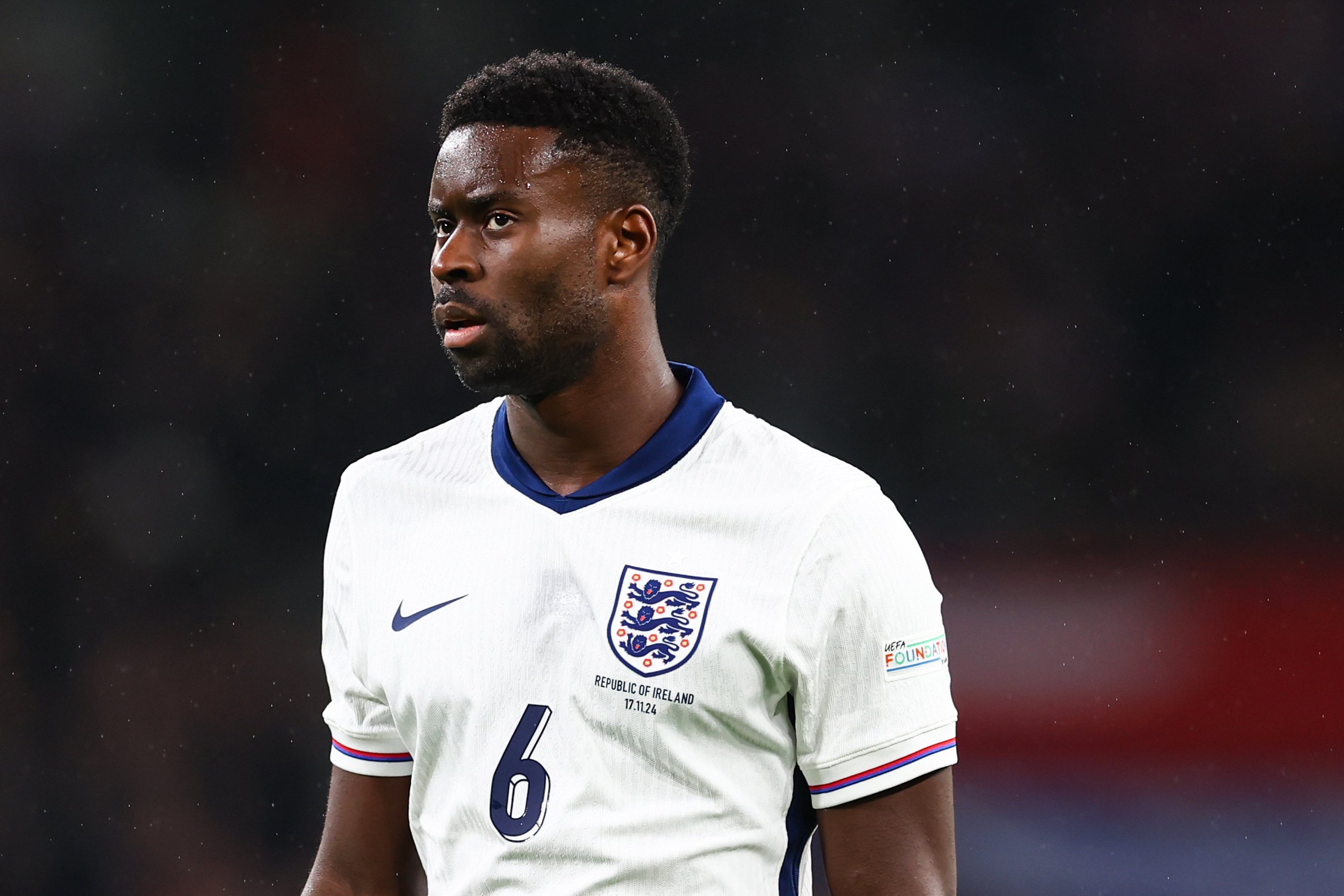Disabled Premier League supporters: "They looked at us like they'd never seen fans in wheelchairs"
Disabled fans tell FourFourTwo's Andy Mitten about being snubbed at the Camp Nou, getting stick from the oppo and their secret weapon in the fight for better facilities: Sir Alex Ferguson... Portraits: Simon Stacpoole/Offside
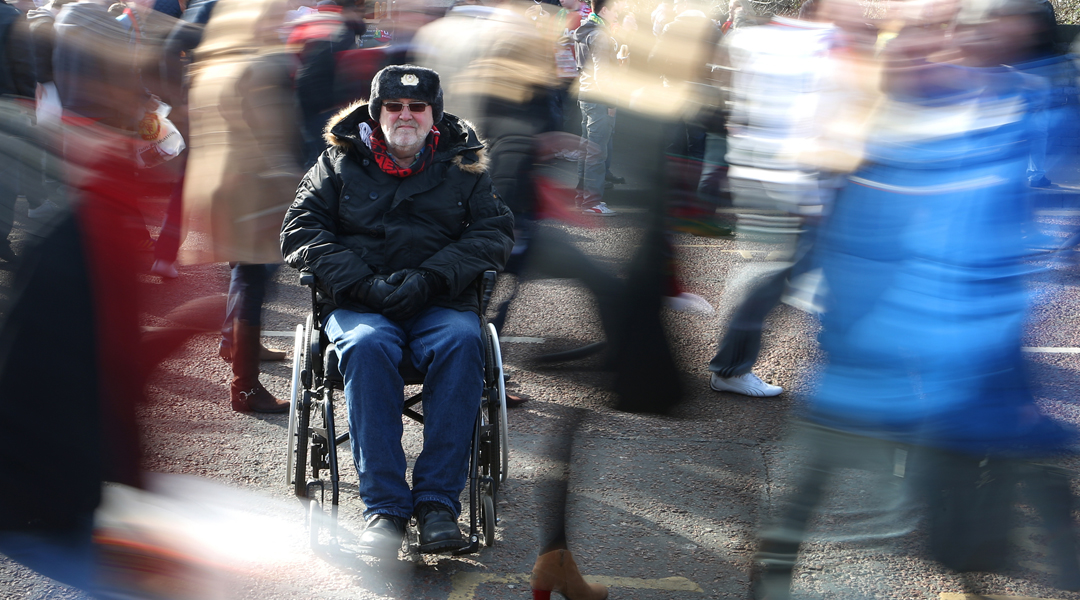
Camp Nou, May 26, 1999 and David Beckham swings in his second injury-time corner. It’s flicked on at the near post by Teddy Sheringham and poked home by Ole Gunnar Solskjaer. For the 50,000 Manchester United supporters in the stands, it’s the greatest night of their lives; two stoppage-time goals to snatch a 2-1 victory from the jaws of defeat. An unforgettable scene. If you could see it.
For the 11 disabled United fans who made the long, arduous journey to Barcelona, all they could make out was a small section of the pitch, missing both goals and a once in a lifetime reprieve. “Barcelona was our most soul-destroying trip ever,” says Chas Banks, who was there that night.
“We were crestfallen. We had a letterbox view of the pitch and couldn’t see either goal. I had to judge what was happening in the game by the crowd’s reaction,” says Phil Downs, the head of Manchester United’s disabled supporters association (MUDSA).
“I sat there thinking how disappointed the others must be after all that effort. They would have enjoyed a better view of Sheringham and Solskjaer’s late heroics had they stayed at home.”
We had a letterbox view of the pitch and couldn't see either goal
That eventuality was made all the more galling after the trouble the MUDSA went to get to that final. Initially they were told there would be no tickets for them at Europe’s biggest football stadium, as it didn’t have sufficient disabled facilities. When MUDSA complained to UEFA and the media, a temporary wheelchair platform was constructed. They were then eventually given 15 tickets – significantly less than the 48 they had requested.
“The authorities were confused and looked at us like they’d never seen football fans in wheelchairs... because they hadn’t,” explains Banks. “It was after that final that UEFA put proper rules in place.”
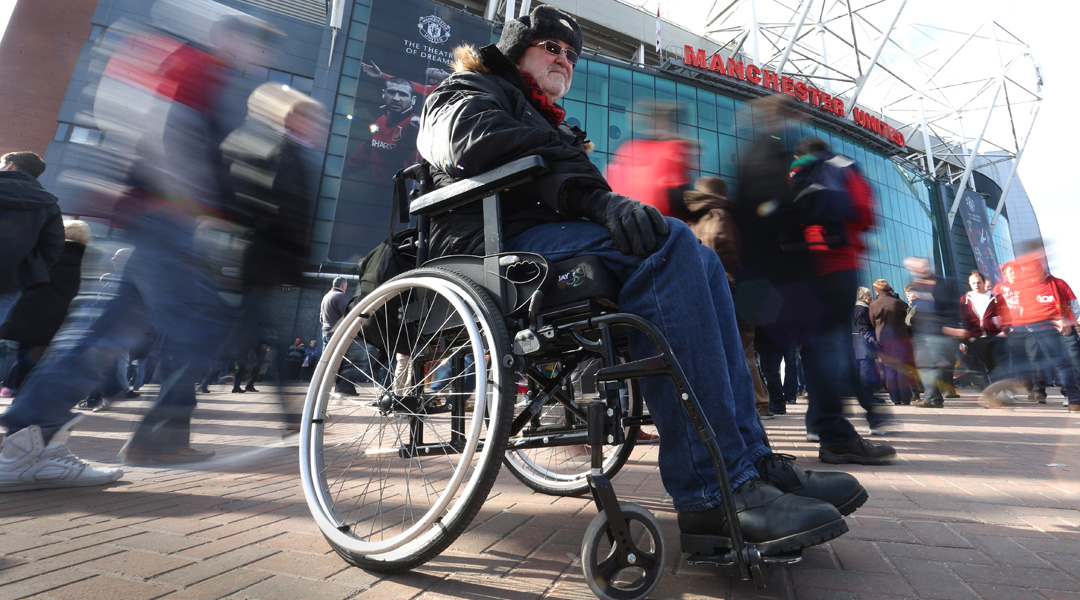
“It was fun watching Clough close up”
The best features, fun and footballing quizzes, straight to your inbox every week.
A decade and a half on, facilities for disabled football fans have improved considerably; something FFT can experience first-hand as we travel to Old Trafford for Manchester United’s Premier League game against Norwich with Banks and Downs. They are just two of an estimated 30,000 disabled fans who attend football matches up and down the country on a weekly basis
The home of the league leaders may be over 100 years old, but it can now accommodate 128 wheelchairs over three levels in the east end of the stadium rather than pitchside. “We used to be behind the away dugouts,” explains Downs. “It was fun watching Brian Clough in action close up, but it’s much better now.”
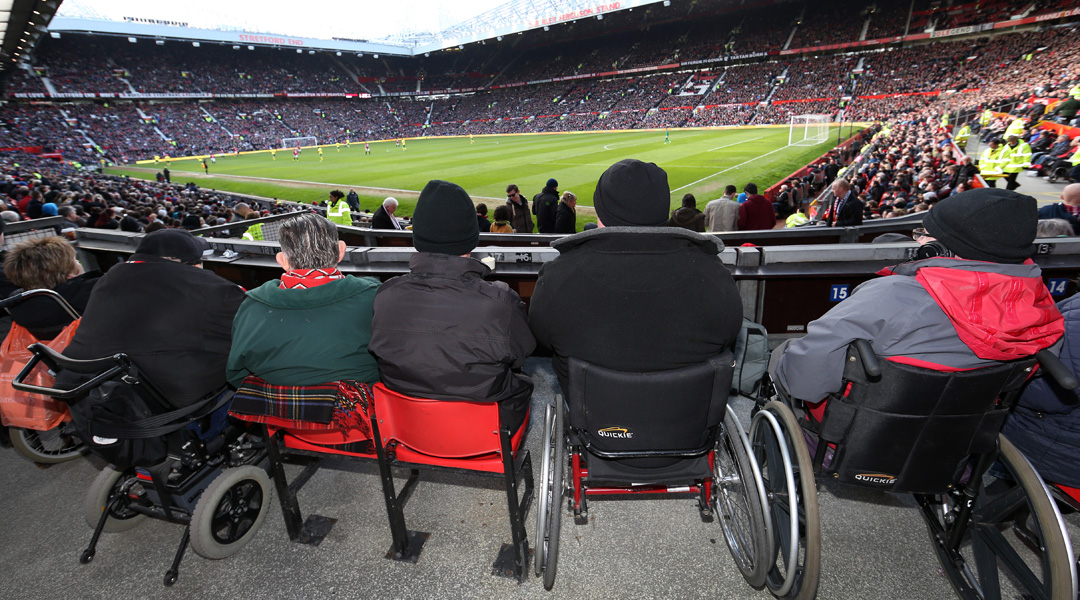
All the disabled places for today’s game have been taken, hardly surprising considering that membership to MUDSA, which started in 1989, is up to 1,550. As well as increased ticket allocation and improved facilities on the ground, fans have a free parking space with wider berths in the directors’ car park closest to the stadium. Old Trafford’s main disabled section is 60 metres long.
Ambulant disabled fans (who are not wheelchair bound) can receive commentary via headsets or on personal screens. United are one of 21 clubs in the country to provide this service. As for the opposition, 12 disabled Canaries fans have made the journey and sit in front of 3,000 away fans. They are one of just four away clubs to sell out their allocation at Old Trafford this season – and they will later be heard bellowing, “You’re nothing special, the Scousers got five!” after a 4-0 defeat.
“Emirates and the new Wembley got it wrong”
There wasn’t a key moment or piece of legislation that triggered change; it was more a gradual progress as countries improved existing stadia or built new ones, usually for major tournaments. The situation continues to improve, though inadequate old facilities remain and new-builds make errors. “Despite guidelines, both the new Wembley and Arsenal’s Emirates stadium had to be retro-fitted as they got it wrong first time,” explains Banks, a born and bred United fan who saw his first game aged seven in 1957.
The new Wembley and the Emirates had to be retro-fitted - they got it wrong the first time
He sold programmes from the Stretford End in the late ’60s before working in the music industry, travelling the world with Joy Division, New Order, The Kinks, Teenage Fanclub, Nirvana and the Stone Roses.
That stopped in June 1996, when, aged 46, he went to field a ball while playing cricket and his leg gave way. “There was a gradual but steady decline until I had a complete system collapse three months later,” he recalls. “I woke up the next day and I was paralysed from the neck down.”
After treatment for transverse myelitis, a neurological disorder in the same family as multiple sclerosis, Banks got the feeling back in his arms and chest. He’s now classified as ‘an incomplete tetraplegic’. “That means I can wipe my own arse,” he explains.
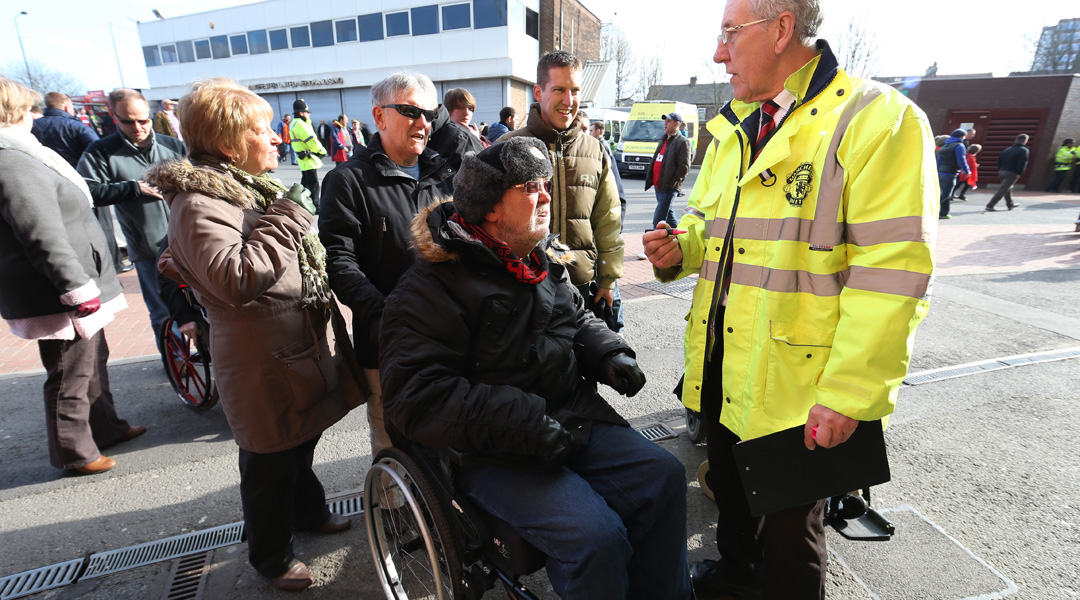
“I recently bumped into an ex-Bolton player, Paul Allen. He’s 44 and has got the same as me. He woke up one morning paralysed from the chest down but sadly didn’t get any recovery like me.
Markus Babbel had something similar, but made a full recovery. Unfortunately for me, it was a 10-month wait to see a neurologist – and that was as an emergency.”
Banks joined MUDSA and has travelled with them to games home and abroad ever since in what he calls ‘the chair’. He’s witnessed the improvements first-hand. “At the old Wembley, we were positioned on a ramp where the Olympic flame was – an afterthought from a bygone age.
You were constantly in danger of rolling or tipping backwards. The floor of the one disabled toilet was covered in p*** like the rest of the Wembley toilets. The new Wembley is much better and has the best facilities in Britain.”
“We threatened to chain our wheelchairs to Wembley”
Organised action by disabled supporters has played a large part in the advancements made in stadia. “We threatened to chain ourselves in our wheelchairs to the new Wembley if they didn’t implement the right measures,” explains Banks.
At the Millennium Stadium in Cardiff, disabled fans couldn’t see the pitch if fans stood up in front. MUDSA accordingly advised members not to attend the 2003 League Cup Final.
At Southampton, the crowd surged forward and I dislocated my elbow
“That’s when Sir Alex Ferguson got involved,” Banks recalls. “He went public saying that disabled fans were entitled to see the game like anyone else. He’s always been amazing with us, like he has a sixth sense, as if someone in his family is disabled. Diego Forlan got involved too. His sister is in a wheelchair. Cardiff relented and built a new platform so that we could see the game that day.”
Being able to see the game isn’t always the problem. Sometimes disabled fans are too close to the action.
“You still get put pitchside at some grounds,” Banks says. “You’re in the elements, the view is poor, you have TV cameramen coming right in front of you and it can be dangerous. I once had my finger broken because of the celebrations around me.
“At Blackburn, you have 5,000 away supporters behind you and no barrier in between. If those fans are celebrating a key goal, they can get terribly excited. Most have been drinking and they don’t even see you. You have to be really devoted if you’re disabled and want to go to football.”
“I dislocated my elbow at Southampton when the crowd surged forward,” says Kevin Peek, another diehard United fan in the disabled supporters section, one who has brittle bone disease. “I panicked and fell out of my chair. Putting us by the pitch with no protection from behind is not the answer.” Peek has been used as a guinea pig for new disabled sections: “I’m so small, so if I can see, anyone can!”
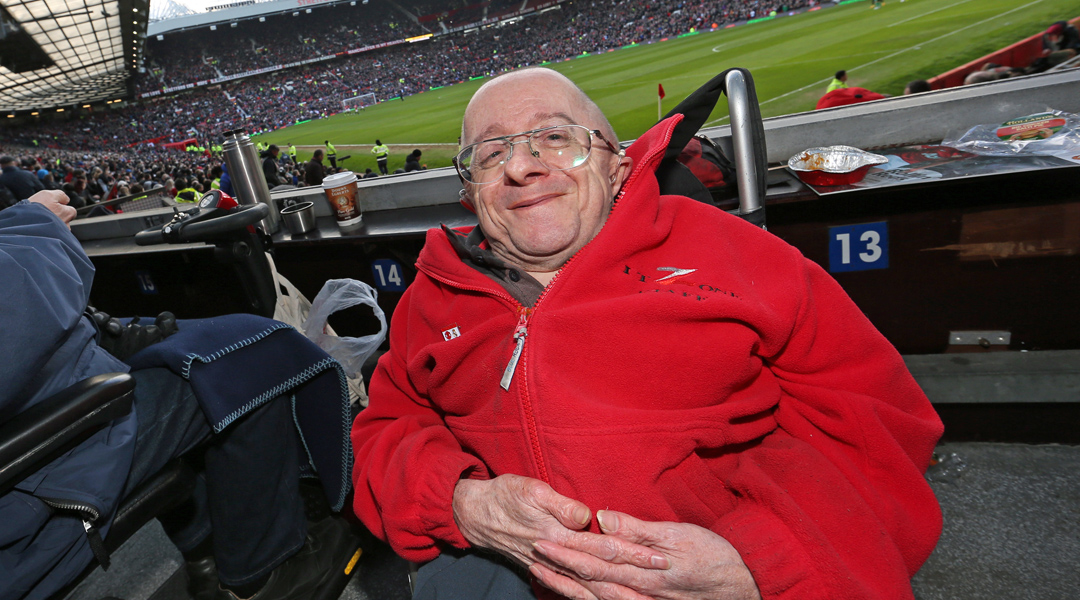
While he may be small, that’s not stopped him being targeted by away fans in the past. “I wouldn’t wear colours at Liverpool, it’s too dodgy,” continues Peek. “It was really bad in the late ’70s and early ’80s. You’d get coined in your wheelchair. At Everton, they put us between the home and away fans. They would throw things at each other and we’d be caught in the crossfire.”
In the 70s and 80s, you'd get coined in your wheelchair. You'd get caught in the crossfire
Things have improved on the road, although travelling to away games isn’t always easy. For Manchester United’s 4-3 win over Reading at the Madejski in December, Banks set off seven hours before the 5.30pm kick-off on a specially converted coach, made to hold three wheelchairs. Pre-match preparations start even earlier.
“It takes me three hours to get ready before leaving for a game,” explains Banks, who claims the Premier League’s constant fixture tinkering is a real problem.
“If an away game is moved to 12.45pm I simply can’t go because I can’t ask my wife to wake up with me at 2am,” he explains. “We really are punished more than able-bodied supporters when kick-off times change.”
“Players didn’t know how to behave with severely disabled people”
It takes me three more hours to get ready. If an away game is moved to 12.45pm I'd have to get up at 2am
It’s half-time at Old Trafford and the disabled fans make their way beneath the stand, round the stadium’s holding cell where a fan in handcuffs is charged with touting. They pass pictures of previous trips to Barcelona, Moscow (72 wheelchairs, visually impaired fans, plus carers) and Rome (with 165 travellers, the largest movement of disabled fans in history) and the club’s stars.
“Sir Alex [back when he was in charge at United, of course] demands every player turns up to our Christmas functions and he wants to know of anyone who doesn’t,” says Banks. “He runs a three-line whip and helps out a lot.
“Shinji Kagawa arrived late to the last one,” says Banks. “He’d stayed behind and done weights after training. We were tidying up when he came in by himself. He asked for a cup of English tea and sat talking with us for an hour in English. That’s not untypical. Ole Gunnar Solskjaer, Steve Bruce, Ryan Giggs, Gary Neville and Eric Cantona were all superb.”
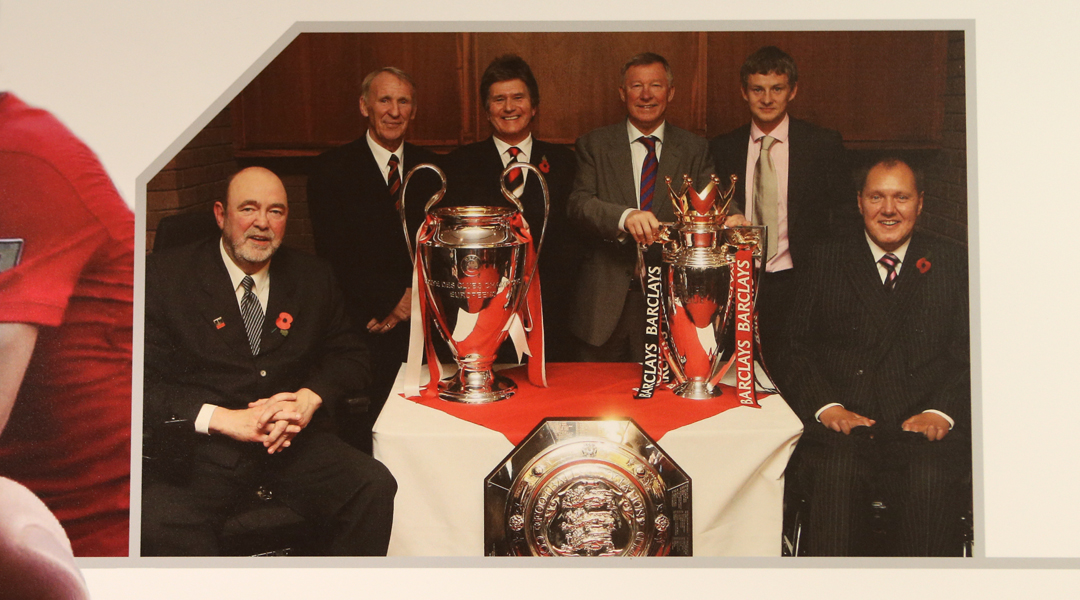
Not all players knew how to act appropriately. “The younger players now get disability etiquette training,” adds Banks, “but it used to be difficult because players didn’t know how to behave with severely disabled people. Now, they know to crouch down when talking to someone in a wheelchair or when they have photos.”
Young players now get disability etiquette training. They know to crouch down when talking
Sometimes it can work the other way around, however – as Peek experienced after bumping into Cantona at a club event. “He asked me if I wanted an autograph,” explains Kevin. “I froze and panicked. His aura was too strong for me. So I said no. I regret that decision to this day.”
“This facility is more than just seeing the game”
MUDSA are not immune to scams. There was the disabled Everton fan who touted his ticket to someone able-bodied enough to jump out of his seat and do a little celebration dance with his helper when the Toffees scored. “We get miracles at every game,” notes Downs, dryly.
Sometimes there are no such miracles. One fan wanted to watch United at Old Trafford before he died. MUDSA can be very accommodating, but were concerned when they discovered the severity of his condition. He was so poorly that his ambulance wheeled him straight into the stadium in a hospital bed. He died that night.
As the Norwich game enters the final stages, United extend their lead as Kagawa scores his third (fuelled by tea, perhaps) before Wayne Rooney fires in a fourth from 25 yards. With the match all but over, talk turns to whether disabled fans or their helpers should pay for a ticket.
Some within the disabled community claim that complimentary tickets, issued at Old Trafford and several other Premier League grounds, are patronising and demean disabled people. Other clubs charge around half the adult price, or full price for the helper.
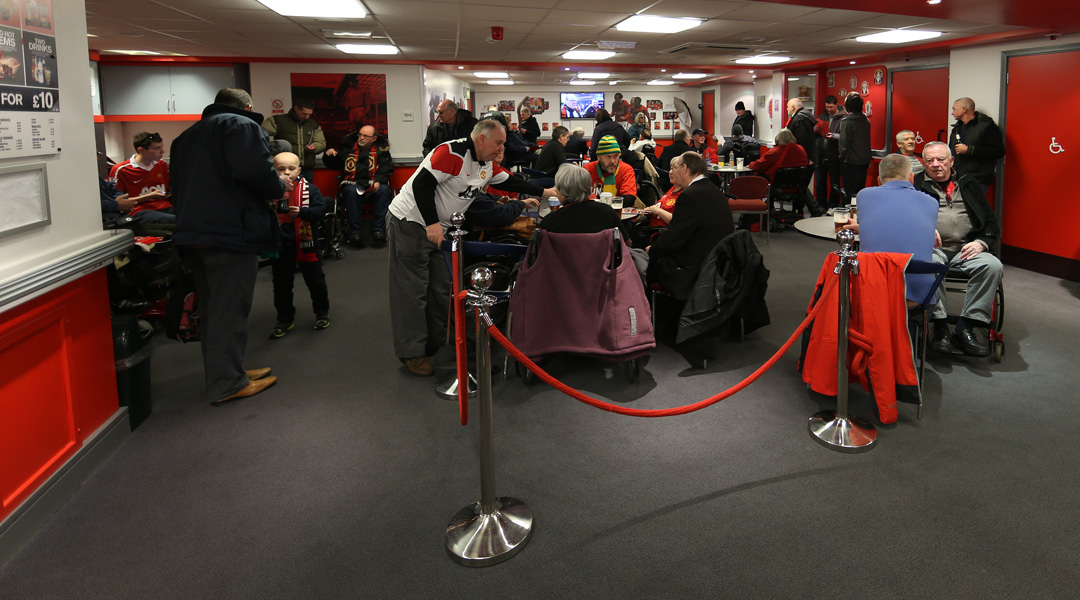
“I don’t agree with that school of thought,” says Banks. “They say that disabled people shouldn’t be seen as charity cases, yet many here today simply couldn’t afford to go to games if they had to pay. This facility is more to them than just seeing a game, it’s the highlight of their week and provides them with a sense of community and belonging.”
As the Rollin’ Reds – the nickname MUDSA have given themselves – file away from the game, there’s a sense that a football ground can now be a home away from home for disabled supporters. A feeling that’s light years from the devastation they experienced after winning the Champions League in 1999.
This feature originally appeared in the June 2013 issue of FourFourTwo. Subscribe!

Andy Mitten has interviewed the likes of Lionel Messi, Eric Cantona, Sir Alex Ferguson and Diego Maradona for FourFourTwo magazine. He also founded and is editor of United We Stand, the Manchester United fanzine, and contributes to a number of publications, including GQ, the BBC and The Athletic.
 Join The Club
Join The Club





